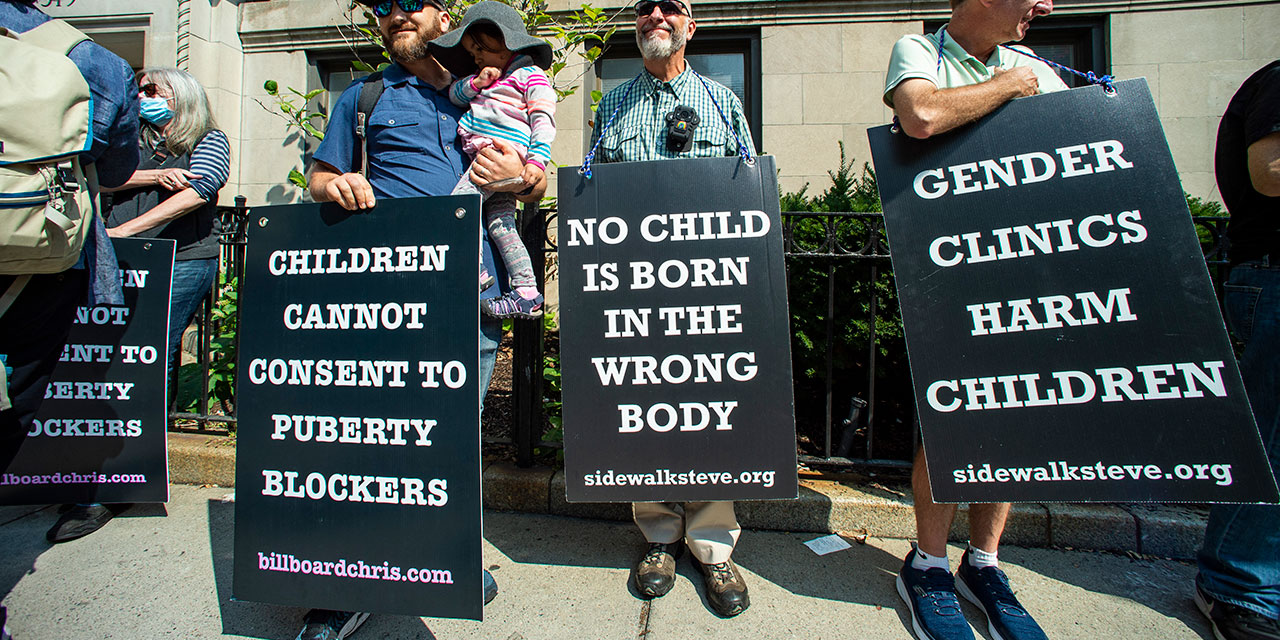The Biden administration wants to devote more than $1 trillion to social spending, including child care—an area in which its plans say more about its political philosophy than about the nominal goal of supporting families.
If Democrats want to stabilize the child-care market and improve options for working parents, they could easily do so by directing money into the chronically under-funded Child Care and Development Block Grant, which generally lets parents choose the provider that best suits their needs. Instead, they want to set up a new, separate structure that marries the technocratic arrogance of Obamacare with a totalizing worldview that tends toward seeing institutions of civil society as merely wards of the state. The result, if it passes, will be a diminution of small-scale, informal care settings—especially those operated by churches or houses of worship—in favor of a state-subsidized, professional class of caretakers.
Fully one-third of married parents who use child care outside the home send their young ones to a program located at a church, place of worship, or private school. That may even underestimate the role of religious care providers: one poll found that half of parents participating in center-based child care attend a program with a religious affiliation. Two Bipartisan Policy Center polls, conducted before and during the onset of Covid-19, suggest that parents’ top-two preferences for where their young children spend the most time during the day was either at home with a parent or at a faith-based child-care provider. So one would think that a strategy around meeting parents’ preferences and improving their options would make religious and faith-based child-care provision a centerpiece.
But Democrats have different goals in mind—goals that relegate religious providers to the margins. The Build Back Better framework is premised on the idea that caretaking responsibilities are the reason “nearly 2 million women in our country have been locked out of the workforce,” as President Biden’s Twitter account recently put it. Proponents cite the example of Quebec, which introduced a universal child-care option and saw female labor-force participation jump. But the story may be less straightforward than the pleasant picture they paint. Research suggests that expansion of public pre-K to four-year-olds in Georgia and Oklahoma increased program uptake but had near-zero effects on maternal labor supply, and the much-touted Quebec experience seems to have led to worse outcomes for children, particularly those from middle- and upper-income families.
Not to worry, progressives say. The Build Back Better plan will boost the economy not just by getting parents back to work, but by increasing our children’s human capital by entrusting them to the care of professional care providers in “high-quality” environments. BBB seeks to do this by enlisting states in a series of mandates and subsidies and requiring providers to agree to certain enhancements, such as higher pay and more stringent education requirements. The plan also includes language forcing recipients to abide by anti-discrimination laws and other federal provisions.
Proponents of the bill point to a clause saying that BBB funds could be used for “sectarian child care services if freely chosen by the parent.” But the BBB provisions are intended to drive up the cost of care across the board, then subsidize firms that participate. How will parents have their free choice of care when faith-based providers feel compelled not to participate in the new subsidy scheme and are forced out of business when they are unable to compete with for-profit or non-sectarian providers subsidized by Washington?
If pushed, most progressive child-care activists will say nice things about the importance of “mixed-delivery” systems, which offer a multiplicity of providers. Yet House Education and Labor chairman Bobby Scott opposes “any effort” to modify the BBB language to accommodate religious groups’ concerns. Democrats constructed a new set of child-care subsidies, rather than investing in ones that already exist—and already guarantee protections for faith-based providers. This suggests that they are at best indifferent to the possibility that faith-based providers will be crowded out.
What would a better child-care plan from Congress look like? First off, it should recognize that the market for child care does suffer from certain failures such as opacity of price and quality that require government intervention. (I outlined a few of these options in a report this summer for the Niskanen Center). Expanding funding for the Child Care and Development Block Grant, an existing source of support for a broad range of providers, could even attract some bipartisan support as an alternative to the Democratic approach.
On a more tactical level, some surgical amendments could ameliorate the greatest harms in the current Build Back Better. A provision barring religious or sectarian facilities from receiving grants intended to increase child-care supply should be stricken, or at least rewritten to be more specific. If lawmakers are concerned about religious organizations using the grants to expand unrelated properties, they could restrict the use of the grants to buildings that actively provide a child-care program, with no mention of any religious or sectarian tests. Failing even that bare minimum of accommodation would demonstrate that Democrats are more worried about accidentally subsidizing religious organizations than addressing parents’ concerns.
Progressives tend to support hyper-professionalization and assume that civil society organizations exist to advance a top-down social agenda. These assumptions will have negative consequences for faith-based child care. It may not be most congressional Democrats’ explicit intent to replace well-intentioned amateurs in church basements with professionalized and credentialed child-care workers in for-profit centers, but that would be Build Back Better’s long-run effect.
Photo by: HUM Images/Universal Images Group via Getty Images




